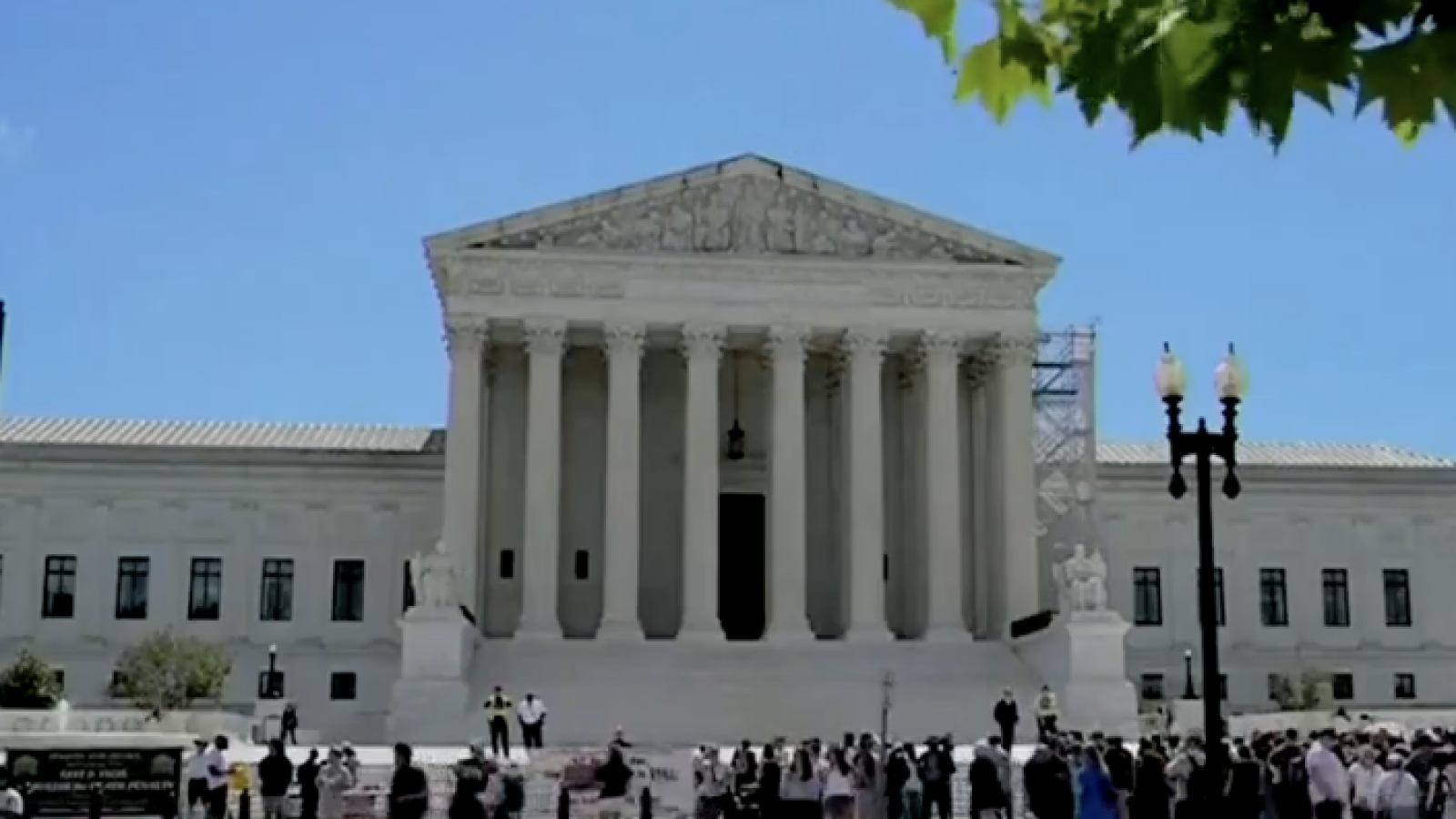The United States Supreme Court ruled on Trump’s absolute immunity case.
In a 6-3 ruling, the Supreme Court ruled in Trump v. United States that “former presidents have absolute immunity from prosecution for their official acts and no immunity for unofficial acts.”
The Supreme Court has now sent the case back to a lower court as the justices did not apply the ruling to Trump’s J6 case, in which Trump initially pleaded defense of absolute immunity.
Chief Justice John Roberts wrote, “We conclude that under our constitutional structure of separated powers, the nature of Presidential power requires that a former President have some immunity from criminal prosecution for official acts during his tenure in office. At least with respect to the President’s exercise of his core constitutional powers, this immunity must be absolute.”
Trump’s attorney, Alina Habba, broke down the decision:
Trump Senior Advisor @AlinaHabba: It's a good day when the Supreme Court recognizes the constitutional rights of presidents. It will slow down Jack Smith's persecution & selective prosecution of President Trump, and I don't see how this case could go forward before the election. pic.twitter.com/dLZntW4WDg
— Trump War Room (@TrumpWarRoom) July 1, 2024
Check out what Fox News reported:
The Supreme Court ruled Monday in Trump v. United States that a former president has substantial immunity from prosecution for official acts committed while in office, but not for unofficial acts.
ADVERTISEMENTThe Court sent the matter back down to a lower court, as the justices did not apply the ruling to whether or not former President Trump is immune from prosecution regarding actions related to efforts to overturn the results of the 2020 election.
The question stemmed from Special Counsel Jack Smith’s federal election interference case in which he charged former President Trump with conspiracy to defraud the United States; conspiracy to obstruct an official proceeding; obstruction of and attempt to obstruct an official proceeding; and conspiracy against rights.
Those charges stem from Smith’s months-long investigation into whether Trump was involved in the Jan. 6, 2021, Capitol riot and any alleged interference in the 2020 election result.
Trump pleaded not guilty to all charges and argued he should be immune from prosecution from official acts done as president of the U.S.
BREAKING: The Supreme Court has ruled on the Trump immunity question.
In a 6-3 vote, the Court ruled that presidents have "absolute immunity" for official "actions within his conclusive and preclusive constitutional authority" and instructed the lower trial courts to hold… pic.twitter.com/gLhpw1jFi7
— Sean Davis (@seanmdav) July 1, 2024
Check out what CBS reported:
“We conclude that under our constitutional structure of separated powers, the nature of Presidential power requires that a former President have some immunity from criminal prosecution for official acts during his tenure in office.
At least with respect to the President’s exercise of his core constitutional powers, this immunity must be absolute,” Chief Justice John Roberts wrote. “As for his remaining official actions, he is also entitled to immunity. At the current stage of proceedings in this case, however, we need not and do not decide whether that immunity must be absolute, or instead whether a presumptive immunity is sufficient.”
While concluding that former presidents have sweeping legal protections from charges for alleged acts that fell within their official duties, the Supreme Court rejected Trump’s claims that he is entitled to sweeping, absolute immunity from prosecution that encompasses unofficial acts. Such a decision would’ve brought the federal prosecution by special counsel Jack Smith to an end.
The ruling makes it highly unlikely that a trial will happen before the November presidential election.
ADVERTISEMENTTrump, the presumptive Republican presidential nominee, has sought to delay proceedings in the case related to the 2020 election, as well as two other prosecutions, until after the upcoming presidential contest. If Trump defeats President Biden in November, he could order the Justice Department to seek to drop the federal charges against him or issue a pardon for himself, though the constitutionality of that maneuver has not been tested.
BREAKING: Supreme Court rules on Trump immunity case as term endshttps://t.co/r3YZkAcLbf
— FOX 12 Oregon (@fox12oregon) July 1, 2024



Join the conversation!
Please share your thoughts about this article below. We value your opinions, and would love to see you add to the discussion!